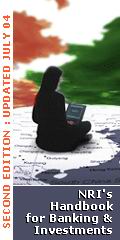|



|
Rising Bank Systemic Risk to Crystallise as Credit Growth Slows
27 September 2007: Fitch Ratings says, in its latest "Bank Systemic Risk report" issued today, that global credit growth is slowing, and concerns about rising bank systemic risk, highlighted in this and previous such reports, are increasingly likely to crystallise. "Fragilities that have built up but been masked by rapid credit growth are likely to be exposed as credit growth slows from now on," says Richard Fox, Senior Director in Fitch's sovereign team.
Median real global credit growth peaked at 14% last year - its highest since the eve of the 1997 Asian crisis. Growth has already slowed this year, a trend that will gather pace due to the liquidity squeeze triggered by the US subprime crisis. Fitch forecasts real credit growth to slow to around 9% this year. This is still high enough to increase vulnerability to potential bank systemic stress, as measured by Fitch's Macro-Prudential Indicator (MPI). This aims to identify where excessive lending growth is accompanied by either strong asset price appreciation and/or real exchange rate strength, conditions which often herald systemic problems. But as credit growth slows, the growing risk of systemic stress documented in successive reports is increasingly likely to materialise.
Three-quarters of developed countries and half of emerging markets now give 'moderate' or 'high' cause for concern due to developments in credit growth, asset prices and real exchange rates, proportions which are likely to rise in the next six months. However, no new developed country banking system has entered the highest macro-prudential risk category ('MPI 3') over the last six months. Moreover, based on Fitch's Banking System Indicator (BSI), which measures intrinsic banking system quality or strength and is driven by Fitch's bank Individual ratings, the US and UK remain in a group of only seven 'very strong' ('BSI A') banking systems, notwithstanding the problems caused by the US subprime crisis. Any further fallout there is expected to be isolated and contained, falling well short of a full-blown systemic crisis. The German banking system also remains 'strong' ('BSI B'), alongside two-thirds of developed country systems. The Japanese banking system has continued to strengthen and now joins this group of 'strong' developed country systems.
The two systemic risk indicators, the BSI and MPI, need to be judged side-by-side in gauging overall bank systemic risk. Stronger banking systems, as measured by the BSI, are better able to deal with the potential stress that the MPI aims to identify. Korea is the only new country entering the highest macro-prudential risk category ('MPI 3') in this latest report, where it joins seven existing countries. However, its banking system has also strengthened, to join a growing minority of emerging market systems judged to be 'strong', putting it in a better position to weather potential adverse shocks.
Just three developed countries, Australia, Canada and Iceland, remain in the highest macro-prudential risk category ('MPI 3'). But they all have either 'strong' or 'very strong' banking systems, like the majority (90%) of developed country systems. Iceland continues to exhibit the most extreme indicators where, despite a sharp slowdown, private sector credit is still forecast to rise by 25% of GDP this year to over 300% of GDP. Ireland, Spain and San Marino also continue to top the list of countries experiencing rapid credit growth, although they remain in the 'moderate' risk ('MPI 2') category, as real exchange rate and asset price trends do not exceed the trigger values Fitch uses to assess heightened risk levels. For the same reason, the US and UK also remain in this 'moderate' risk category. Switzerland is the latest developed country to join the 'MPI 2' category. Germany remains in the 'low' risk category ('MPI 1') due to continuing sluggish credit growth.
This report extends Fitch's analysis of property price trends to 30 countries and concludes that, although these are substantially above trend in a number of developed countries, nowhere is the divergence so great as compared with past experience to suggest a high risk of a full-blown system-wide banking crisis.
Emerging market banking systems are typically weaker than developed country systems, but in general do not show as much sign of lending excess as developed markets. An exception is CEE/CIS, where credit growth remains a general concern, with eight of the top ten fastest rates of real credit growth in 2005/6 and 90% of countries 'MPI 2' or 'MPI 3'. Moreover, CEE/CIS banking systems are, with a few exceptions, typically 'weak' ('BSI D') and less able to withstand macro-prudential stress. Azerbaijan and Russia remain in the 'MPI 3' category and on the basis of very tentative Fitch forecasts for 2007 could be joined in the next six months by Kazakhstan, Romania, Turkey and Armenia. All these banking systems remain either 'weak' or 'very weak' ('BSI E'). Fitch also remains concerned by high credit growth where credit-to-GDP is already high, as in the Baltics. Slovakia's banking system indicator strengthens to 'BSI C' ('adequate') in this report.
Half the countries in the Middle East and Africa remain in either the 'MPI 2' or 'MPI 3' categories. This includes the two existing 'MPI 3' countries (South Africa and Iran) and five members of the GCC that are 'MPI 2'. South Africa and most GCC countries, however, are also among the growing minority (now 11) of 'strong' emerging market banking systems, on a par with the typical developed country system.
Asia and Latin America continue to show relatively little evidence of lending excess, with only 30% of countries in the higher 'MPI' categories. But as well as Korea's move to 'MPI 3', Brazil and Colombia move into the 'MPI 2' category and Brazil could enter the 'MPI 3' category in the next six months if current trends continue.
(This is press release of Fitch Ratings)
RELATED ARTICLES
Special section on Sub Prime ...Click here
Bank rating downgrades unnecessary on wide scale ...Click here
US Federal Reserve cuts discount lending rate ...Click here
Asia Growth Stable Amid Global Trends, says Fitch ...Click here
S&P says FIs can absorb blows from turbulent markets
...Click here
Fitch on sub prime affect on Asia-Pacific Banks ...Click here
Moody's on sub prime exposures of US banks ...Click here
S&P report on today's credit market risks ...Click here
CLICK FOR MORE FEATURES & STORIES
|
|


|






